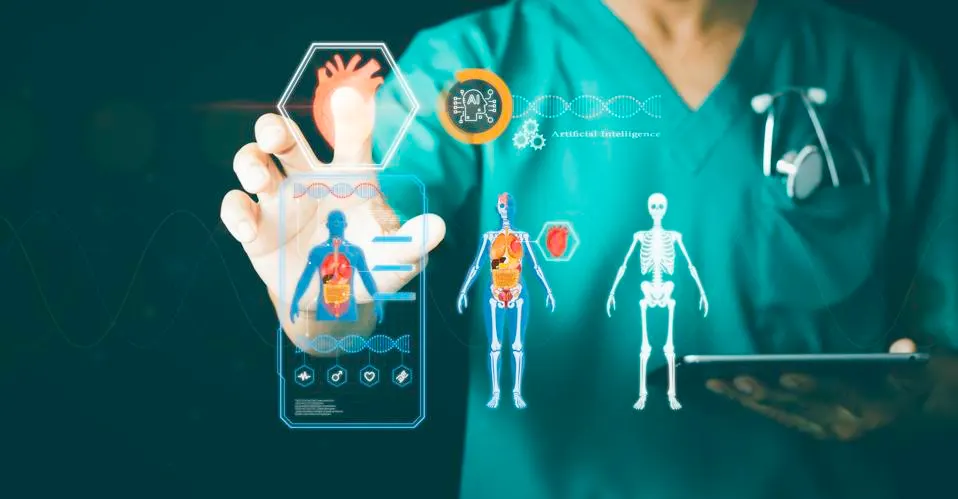Mar 6, 2024,06:06pm EST
Artificial intelligence (AI) and telehealth have ceased to be mere futuristic concepts; they have become integral parts of modern healthcare delivery, transforming patient care. The collaboration between AI-driven data insights and clinicians has revolutionized interactions, offering more comprehensive and meaningful care experiences.
While apprehensions about AI replacing human interaction linger, it is crucial to perceive it as a potent tool augmenting medical expertise, enhancing efficiency, and facilitating the delivery of quality healthcare. However, the integration of AI in telehealth also raises concerns, particularly regarding patient privacy.
Let’s explore the manifold ways in which AI enriches the medical landscape, notably through machine learning, a subset of AI technology.
How AI Is Reshaping Healthcare: AI holds immense potential in various facets of healthcare, from expediting disease diagnoses to tailoring treatments and predicting outbreaks. The compatibility of AI tools with existing telehealth systems allows seamless integration and data exchange among healthcare providers, ushering in transformative possibilities:
Clinical Care Pathways: AI-powered platforms analyze patient data swiftly, discern complex symptoms with near-human precision, and potentially forecast disease risks preemptively. During consultations, AI and telehealth applications offer real-time insights, enabling providers to customize care efficiently.
In radiology, AI aids in automatically detecting intricate patterns in oncology scans, offering quantitative assessments for diseases like lung cancer, colon cancer, liver lesions, and breast cancer.
Operational Efficiency: Research suggests that AI adoption could significantly reduce annual healthcare spending by streamlining administrative tasks and minimizing claim denials and delays. AI enhances appointment scheduling, reduces no-shows, and enhances patient satisfaction. AI chatbots on telehealth platforms provide round-the-clock assistance to patients, addressing basic inquiries.
Patient Empowerment: AI-powered apps analyze personal health data, recommend lifestyle modifications, and offer support, proving invaluable for chronic disease management and preventive care. Patients with diabetes using AI technology have shown better remission rates than those under standard care.
Remote Patient Monitoring: Machine learning algorithms leverage data from everyday devices like blood pressure cuffs and heart monitors to detect anomalies early, enabling personalized interventions during videoconferencing sessions, even before symptoms manifest.
Public Health: AI tracks disease outbreaks in real time, predicts future hotspots, and optimizes resource allocation during pandemics. For instance, Boston Children’s Hospital’s HealthMap employs AI applications to track outbreaks by analyzing news reports, social media, and official health data, providing early warnings for emerging pandemics.
Security Concerns in AI and Telehealth: Ensuring data security and HIPAA compliance is paramount when utilizing AI and telehealth. Healthcare providers must conduct due diligence in selecting a secure telehealth platform, reviewing Business Associate Agreements, and verifying adherence to HIPAA’s technical, physical, and administrative safeguards.
The integration of HIPAA-compliant AI into telehealth systems is rapidly evolving, promising significant enhancements in healthcare delivery, patient outcomes, and access to care.
By harnessing AI technologies, telehealth platforms can offer personalized, efficient, and accessible healthcare services worldwide. As technology progresses, we anticipate further innovative applications of AI in telehealth, perpetuating the revolution in the healthcare industry.

